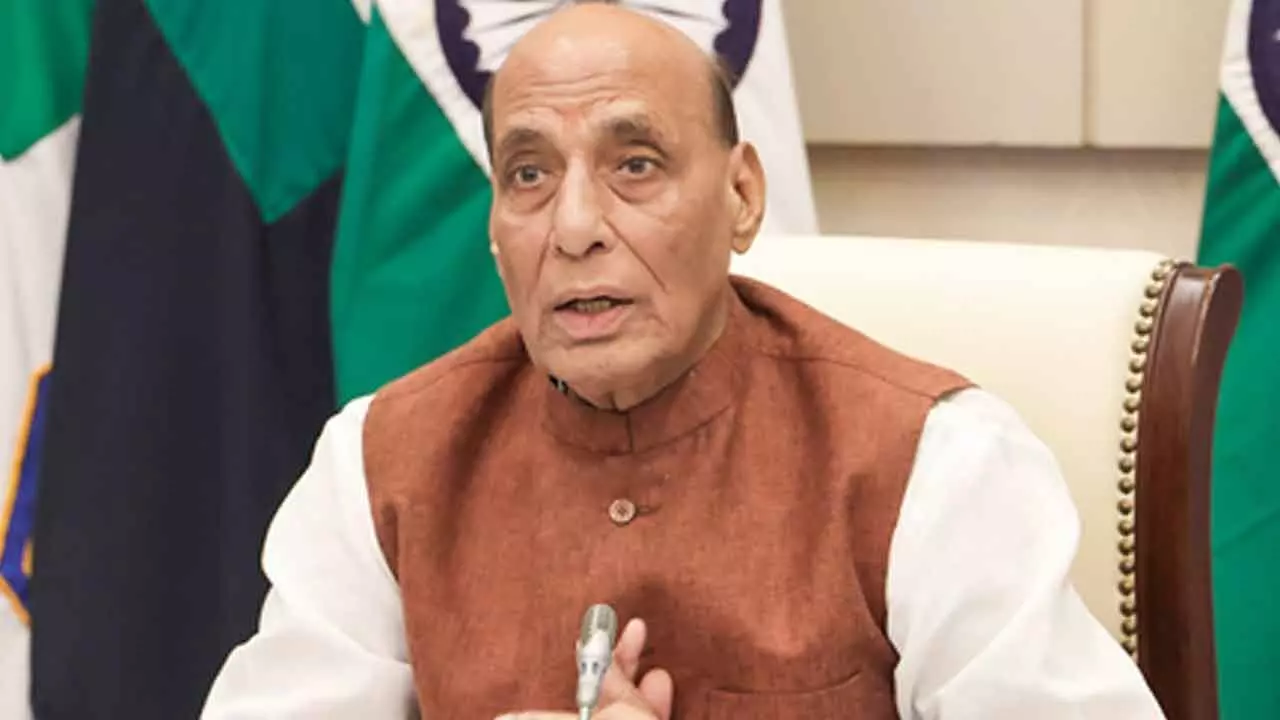Defence Procurement Manual 2025 Approved by Raksha Mantri

Raksha Mantri Shri Rajnath Singh has officially approved the Defence Procurement Manual (DPM) 2025, a significant step aimed at modernizing and simplifying the procurement processes within the Ministry of Defence. This new manual is designed to enhance self-reliance in defense operations and ensure that the Armed Forces are equipped to meet contemporary warfare demands. By fostering collaboration among the three military services and streamlining decision-making, the DPM 2025 aims to maintain high levels of military readiness while ensuring timely access to necessary resources.
Streamlining Defence Procurement
The Defence Procurement Manual (DPM) 2025 introduces a comprehensive framework to regulate the procurement of goods and services by the Defence Services and other organizations under the Ministry of Defence. This updated manual replaces the previous version from 2009 and has been revised in consultation with the Armed Forces and various stakeholders. With an estimated procurement budget of around Rs 1 lakh crore for the current financial year, the DPM 2025 emphasizes the need for alignment with the latest public procurement developments. It aims to incorporate technology into the procurement process, ensuring fairness, transparency, and accountability.
The new manual also addresses the growing importance of domestic defense manufacturing and technology. By promoting active participation from private players, MSMEs, and start-ups, alongside established Defence Public Sector Undertakings (DPSUs), the DPM 2025 seeks to strengthen the concept of Aatmanirbharta, or self-reliance, in the defense sector. This initiative is expected to harness the capabilities of the domestic market, ultimately enhancing the operational efficiency of the Armed Forces.
Encouraging Innovation and Indigenisation
A key feature of the DPM 2025 is its focus on fostering innovation and indigenisation within the defense sector. The manual introduces a new chapter dedicated to promoting self-reliance through innovative practices and local development. This initiative encourages collaboration between public and private industries, academic institutions, and research organizations like IITs and IISc. By leveraging the talents of young professionals, the manual aims to enhance the indigenisation of defense items and spares through in-house design and development.
To further support new entrants in the defense sector, the DPM 2025 relaxes several provisions related to development contracts. Notably, it eliminates the imposition of Liquidity Damages (LD) during the development phase, with minimal LD applied post-prototype development. The maximum LD has been reduced to 5%, with a cap of 10% for significant delays. These changes are designed to incentivize suppliers who strive to meet deadlines while allowing for minor delays in delivery.
Empowering Decision-Making and Enhancing Efficiency
The DPM 2025 empowers Competent Financial Authorities (CFAs) at various levels, enabling them to expedite decision-making processes and ensure timely payments to suppliers. CFAs can now make decisions regarding extensions in delivery periods without needing to consult higher authorities, streamlining the procurement process. This delegation of authority is expected to reduce bureaucratic delays and enhance operational efficiency.
Additionally, the manual strengthens the concept of collegiate decision-making, allowing CFAs to adjust bid opening dates to encourage greater participation without needing to refer to their Financial Advisors. This flexibility is crucial in ensuring that procurement processes remain competitive and inclusive.
To address the complexities of maintaining aerial and naval platforms, the DPM 2025 includes provisions for a 15% growth in work for repair and maintenance activities. This measure aims to minimize equipment downtime and ensure operational readiness. Furthermore, the manual introduces limited tendering for specialized goods, allowing for expedited procurement in urgent situations.
Facilitating Government-to-Government Agreements
The DPM 2025 also streamlines procedures for procurements based on Government-to-Government agreements, particularly for high-value acquisitions. This provision aims to enhance efficiency in special arrangements while ensuring a level playing field among various suppliers. Notably, the requirement for obtaining No Objection Certificates from certain DPSUs before proceeding with open bidding has been removed, allowing tenders to be awarded based solely on competitive bidding.
Observer Voice is the one stop site for National, International news, Sports, Editor’s Choice, Art/culture contents, Quotes and much more. We also cover historical contents. Historical contents includes World History, Indian History, and what happened today. The website also covers Entertainment across the India and World.
Follow Us on Twitter, Instagram, Facebook, & LinkedIn

